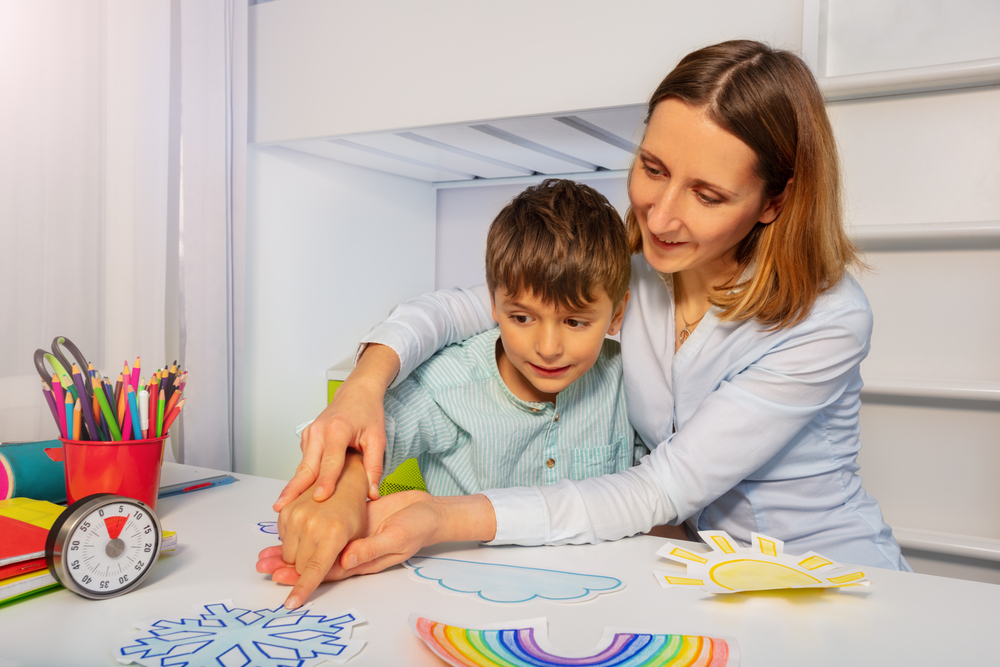Education Strategies For Kids With Learning Disabilities

As their parents are typically well aware, children who deal with learning disabilities will often have certain difficulties within the realm of schooling and education. Whether these troubles involve issues focusing, problems remembering things or various others, there are simple ways that both parents and educators can be cognizant of these concerns and help address them within educational settings.
At Learning Technics, we're proud to offer quality cognitive therapy and related programs for learning disability treatment, both in-person and online, assisting parents and kids alike as they manage these conditions. Whether for parents at home, educators in the classroom or any combination therein, here are some of the simple education approaches for children with learning disabilities.
(One important note before we get started: This is meant to be a very generalized list, one that discusses broad educational concepts for children with learning disabilities. Because each child is unique and each learning disability is too, please feel free to consult with professionals in the field before making any major changes to your child’s educational plan.)
Visual Organization of Information
For many students with learning disabilities, it can be easier to understand and recall information when it’s organized in a visual way. This could mean using color-coded systems, taking notes with arrows or utilizing other visuals that will help break the material up into more digestible sections.
As you're considering ways of organizing the information, think back to what worked best for your child in the past. Try to determine which visuals allow them to absorb and remember the most. One particular tool that may be useful for many kids who benefit from visual organization is an actual visual organizer of some kind. These include tools such as graphic organizers, inspiration maps and word webs. Once kids know how to use these, they can offer a great way of breaking down large pieces of information into more manageable sections.
Teaching to Their Preferred Senses
Down related lines, your child may learn best in a few different ways. Here are some examples, plus ways of teaching or providing educational materials that fit within the way their senses work:
- Audio-based learners: For many children, audio can be the best way of learning and understanding information. This could mean incorporating music into their lessons or using audio recordings for studying purposes.
- Visual-based learners: As we discussed above, visuals can be a great way of helping children understand and recall complex topics. This could mean finding educational videos online or utilizing images to break down information into smaller sections. In other situations, this may involve highlighting information in bright colors, hanging up pictures or other visuals around their desk or workspace, and so forth.
- Kinesthetic-based learners: Many kids also learn best through physical activities. In such cases, try to incorporate as many hands-on activities as possible in the classroom or at home. Fun games or even experiments can all be excellent ways of providing information in a format that appeals to them.
- Tactile learners: Finally, some children even learn best through tactile experiences. For these students, it could be beneficial to provide plenty of 3-dimensional objects to explore and play with, such as blocks or Legos.
The Chunking Technique
We've already touched on the common need to split information into digestible sections for children who have learning disabilities, and the chunking technique is a specific way of doing this. Put simply, chunking means breaking up large pieces of information into smaller chunks that are easier to understand and remember. This could mean anything from grouping words or numbers together to help form memories or illustrating concepts with diagrams.
This concept can be applied in various ways, both inside and outside the classroom. It could mean setting aside specific time each day for studying certain topics or even breaking up worksheets into manageable sections. If you're helping your child with homework or studying, try to keep the information as concise and organized as possible.
Use of Mnemonics
Another related technique is the use of mnemonics. Simply put, these are memory strategies that can help children retain information more easily. Examples of popular mnemonic devices include using acronyms or constructing rhymes or stories to remember information.
For instance, you could have your child come up with an acronym for a particular subject they're trying to learn. For example, the acronym “HOMES” could be used to remember the names of the five Great Lakes: Huron, Ontario, Michigan, Erie and Superior.
Now, it's important to think beyond only the use of acronyms. Other mnemonic techniques can be used in various ways. For instance, a memorable story or song may help them remember certain concepts better than simply writing out the information.
Tutoring Themes
For many children with learning disabilities, tutoring can be a great way to provide them with extra help and support. But it's also important to keep in mind that the right tutor should have an understanding of your child's unique needs.
One option is to use themed tutoring sessions. This means selecting particular topics or subjects that are related to what your child is learning in school. The tutor can then take the time to explain and delve deeper into the material, helping your child understand the concepts on a more comprehensive level.
It's also important to tailor tutoring sessions to each child's individual needs and preferences. For example, if your child is an auditory learner, having the tutor use audio recordings or other sound-based teaching techniques may be beneficial. Or if your child is a visual learner, the tutor can use videos or pictures to help them learn more effectively.
With the right attention to their learning needs and other factors, parents and educators can provide support to children who deal with learning disabilities. For more on this, or to learn about any of our treatments and programs for various such issues, speak to our team at Learning Technics today.